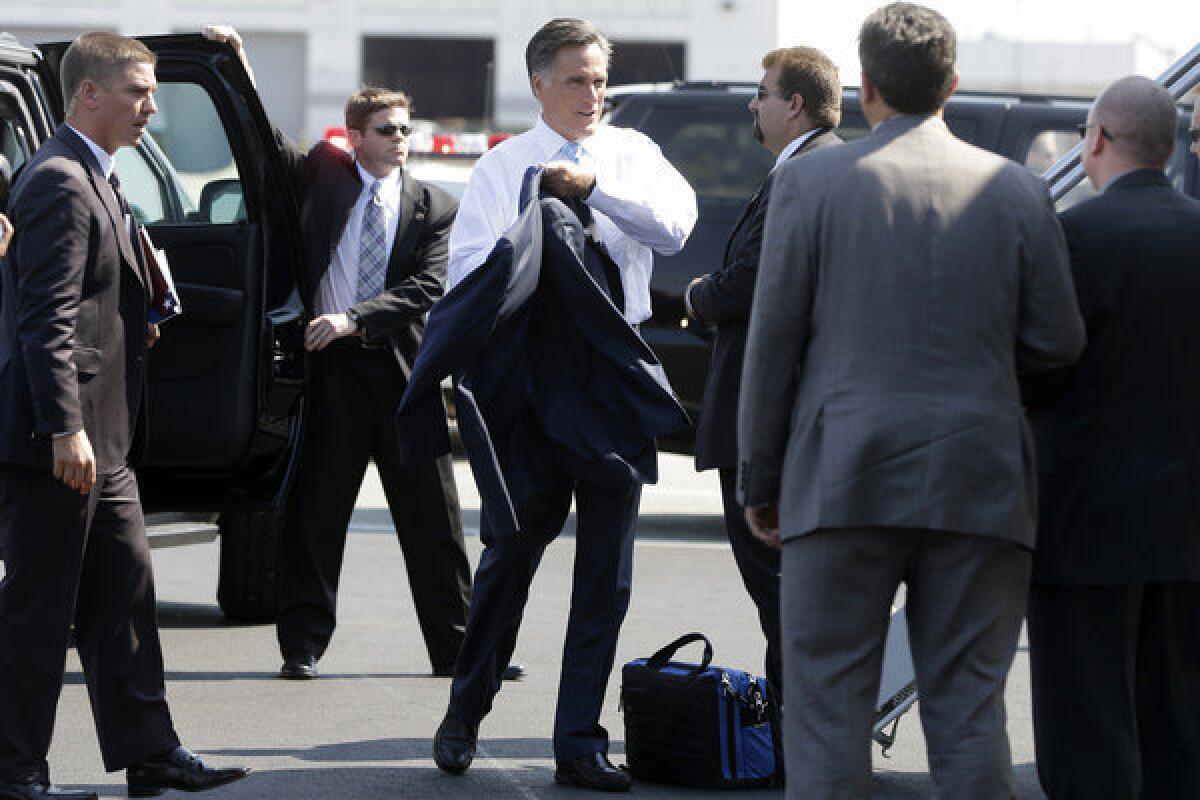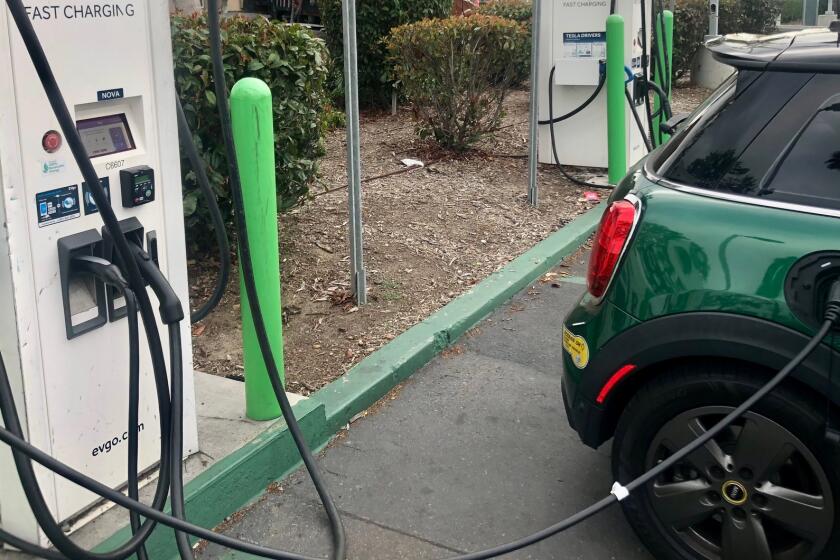McManus: Are businessmen better presidents?

It’s one of Mitt Romney’s favorite lines: America needs a businessman in the White House. It’s “a basic qualification” for the job, he said in his speech at the Republican convention last month, “one that’s essential to [the] task.”
But what does history tell us? Have our greatest presidents come from the ranks of industry and commerce?
Not by any means.
INTERACTIVE: Battleground states
Of the three presidents generally ranked the greatest — George Washington, Abraham Lincoln and Franklin D. Roosevelt — only Washington had real business experience, and that was as an 18th century plantation owner. (Lincoln ran a modest law practice in Illinois but, as Clint Eastwood said at the convention, lawyers don’t count.)
And more recently? A 2009 survey of historians conducted by C-SPAN identified the best presidents since World War II as Ronald Reagan, an actor and union leader; Dwight D. Eisenhower, a career Army officer; Harry S. Truman, a failed haberdasher; and John F. Kennedy, Lyndon B. Johnson and Bill Clinton, all career politicians.
Several presidents with business experience have been elected since World War II, but none is counted among the greats. George H.W. Bush started an oil drilling firm in Texas, but most of his career was as a politician and diplomat. George W. Bush followed in his father’s footsteps but less successfully; when he ran for president, he touted his achievements as governor of Texas, not as an oilman or baseball executive. The first Bush presidency ended after one term, the second in a financial collapse.
COMMENTARY AND ANALYSIS: Obama vs. Romney
There was also Jimmy Carter, who, like Romney, was a governor and Washington outsider who pointed with pride to his management experience — in Carter’s case, as a peanut farmer. But it’s safe to say that Carter isn’t the model Romney’s thinking of.
Other businessmen have run for president and failed. H. Ross Perot ran as a third-party candidate in 1992 and 1996. Herman Cain of Godfather’s Pizza made a brief run for the Republican nomination this year. Donald Trump threatened to run but opted to back Romney instead.
In fact, the list of successful businessmen who became great politicians is surprisingly short.
INTERACTIVE: Outside spending shapes 2012 election
Why? In part because running a successful business and a successful public administration (or even a successful electoral campaign) don’t have all that much in common. As long ago as 1979, Harvard scholar Graham Allison compared the demands of private enterprise and public administration and concluded that they were alike only “in all unimportant respects.”
“The differences are more important than the similarities,” Allison wrote.
Among the differences: Businessmen have clear, measurable goals (mainly increasing profits); political leaders’ aims are less precise (except for winning the next election).
Entrepreneurs can constantly revamp their companies to adjust to the changing environment; political leaders are stuck running government institutions that resist structural change.
“In business,” former Secretary of State George P. Shultz told me long ago, “you have to be careful when you tell someone working for you to do something because he’ll actually go out and do it. In government, you don’t have to worry about that.”
And while businessmen work in a competitive marketplace, they normally don’t have to negotiate budget deals with an opposition that’s constantly trying to discredit whatever they do.
It’s “like being the quarterback of a team chosen by your opponents,” one successful businessman turned politician complained in 1964. That was Michigan Gov. George W. Romney, the current candidate’s father.
So while the younger Romney certainly had success in building Bain Capital, a hedge fund that invested in troubled companies and start-ups, that by no means guarantees that a Romney presidency would be a triumph — or even that he will be elected.
Until now, the Romney campaign has had a simple theory of how to win the election — its business plan, if you will. Romney and his strategists assumed that voters’ frustration with the slow pace of economic recovery would make them open to the idea of firing Barack Obama as president. That part of the plan was correct.
If Romney ran a steady, unadventurous and error-free campaign, and made sure the voters knew that he was a successful businessman who knew how to turn things around, a majority would naturally end up in his camp, they believed.
Only that hasn’t happened. Romney’s campaign hasn’t been error-free. His most recent stumble, a closed-door speech in which he wrote off 47% of the voters as “victims” because of their reliance on government benefits, reflected a peculiar economic determinism; most Republicans know that low-income Americans don’t always vote according to that narrow definition of financial interest.
Meanwhile, the Obama campaign spent much of the summer attacking Romney’s record as a businessman, telling voters that his career revealed that he was intent on helping the upper class more than the middle class.
“Our failure to respond adequately to those attacks has been the biggest strategic error of this campaign,” one Romney activist told me this week.
“I know what it takes to turn around difficult situations,” Romney often says, pointing to his record at Bain. He meant it as a qualification for being president, but first he’ll have to show how his business acumen can fix a sputtering campaign.
Follow Doyle McManus on Twitter @DoyleMcManus
More to Read
A cure for the common opinion
Get thought-provoking perspectives with our weekly newsletter.
You may occasionally receive promotional content from the Los Angeles Times.











